Maine’s native wildflowers come to Vassalboro School
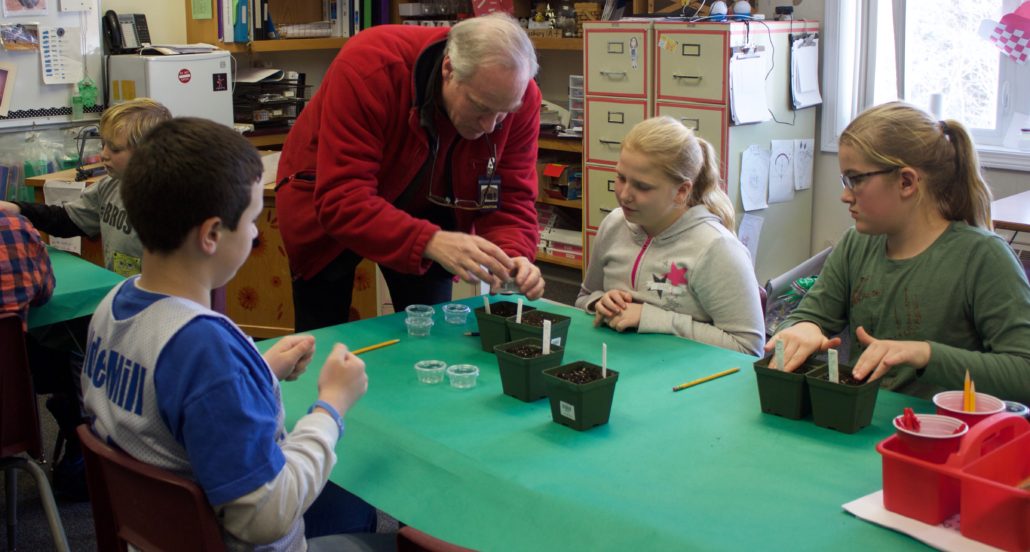
Matt Streeter, standing, assists students, from left to right, Ayden Michaud, Ava Picard and Kaoline Gladden. Contributed photo
The class started with students passing a package of shrink-wrapped alewives around the room, drawing comments like, “Gross,” “Cool,” “I know what those are.” It ended with 80 pots of native plant seeds, ready to be moved outdoors to a cold frame behind the school.
On February 8, students in Lorraine Kingsbury’s science classes at Vassalboro Community School learned about the importance of Maine’s native wildflowers. Karen Simpson, a Maine Master Gardener and Maine Master Naturalist, delivered a lesson on the differences between native plants, non-native plants and invasive plants. Students learned the vital role native plants play in nature’s food web. They discussed how plants help with erosion control along shorelines and learned the differences between planting wild seeds vs. garden seeds normally planted in the spring.
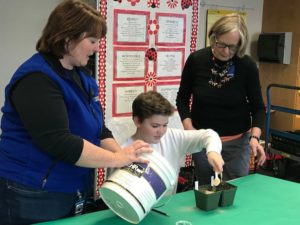
Maine master naturalist Anita Smith, and teacher Karen Simpson flank Kayden Painchaud, while they work with wildflower seeds. Contributed photo
After the lesson, each student planted two pots of native seeds, some no bigger than a speck of dust. Each student will keep a journal recording plant growth, weather conditions and other observations they feel are important in their plants growth and development. The planted seeds will spend the remainder of the winter in a safe secluded area at the Vassalboro Community School.
During the summer, students from the school will care for the plants. At the end of summer the plants will be moved to the Masse Dam site where they will be cared for until the fall. In September or October of 2018, students will plant their native wild plants at the Masse Dam site.
Karen’s presentation was preceded by two other presenters: Nate Gray, from Maine Department of Marine Resources, and Matt Streeter, Project Manager with Maine Rivers. Nate led an engaging discussion about the importance of alewives and how they fit into the food web. Matt shared information about the Alewife Restoration Project. Both took time to answer question from students about alewives and the project. When asked what other questions they might have, one student wisely said, “I think you summed it all up.”
The presenters and students are looking forward to meeting in the fall of 2018 to plant the native plants along the shore of the outlet stream. There may be an opportunity this spring for the students involved with this project to visit the Masse Dam site. The purpose of the trip would be to share history of the site, and engage in other educational activities with the students.
Others who helped with the wild seed project at Vassalboro Community School but not mentioned in the above article were Victor Esposito, JMG Master Specialist, Anita Smith, Maine Master Naturalist, and Elaine Philbrook, with the China Lake Association. The material costs for this project where covered by the China Lake Association. Longfellows Garden Center, of Manchester, provided pots and planting supplies.
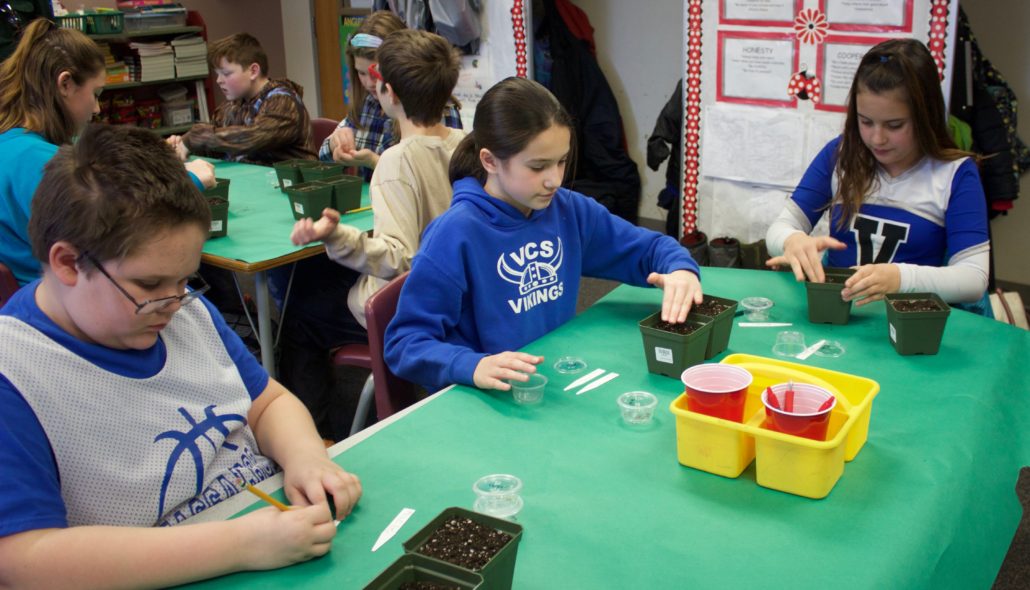
Vassalboro Community School students begin planting wildflower seeds. Front table, left to right, Michael Dellinger, Sofia Derosby and Alexia Tardiff. Back table, Echo Hawk, Carson Cote, Savannah Powell and Camden Burdick. Contributed photo
Responsible journalism is hard work!
It is also expensive!
If you enjoy reading The Town Line and the good news we bring you each week, would you consider a donation to help us continue the work we’re doing?
The Town Line is a 501(c)(3) nonprofit private foundation, and all donations are tax deductible under the Internal Revenue Service code.
To help, please visit our online donation page or mail a check payable to The Town Line, PO Box 89, South China, ME 04358. Your contribution is appreciated!



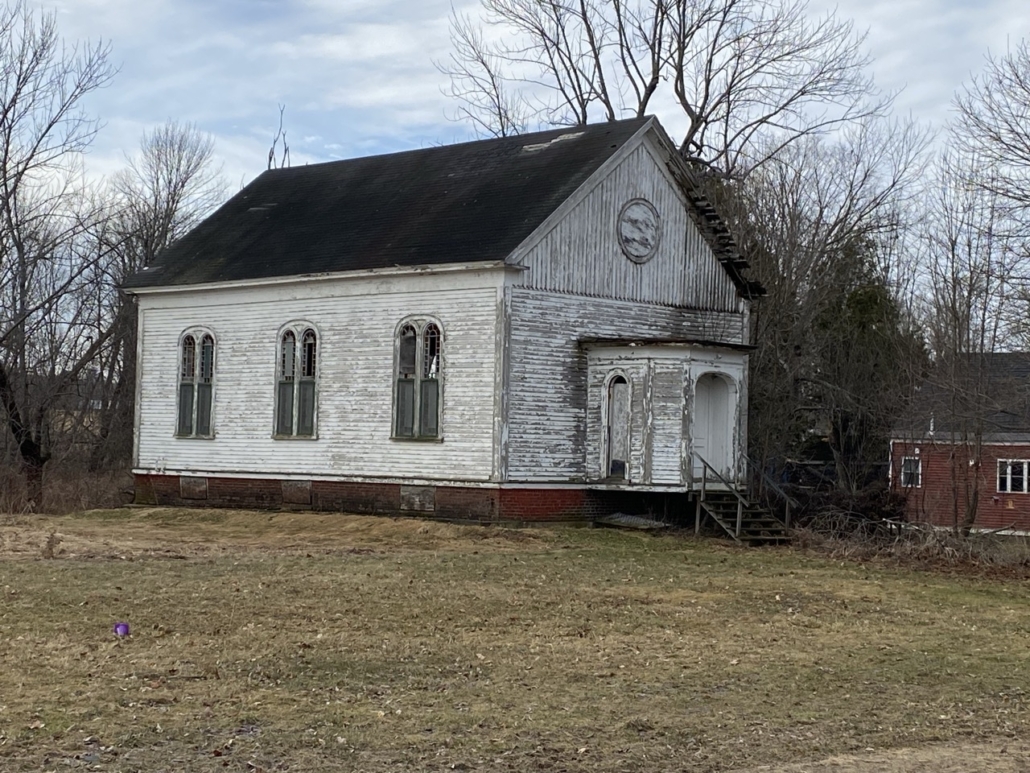
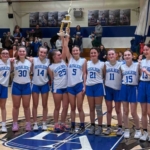
Leave a Reply
Want to join the discussion?Feel free to contribute!